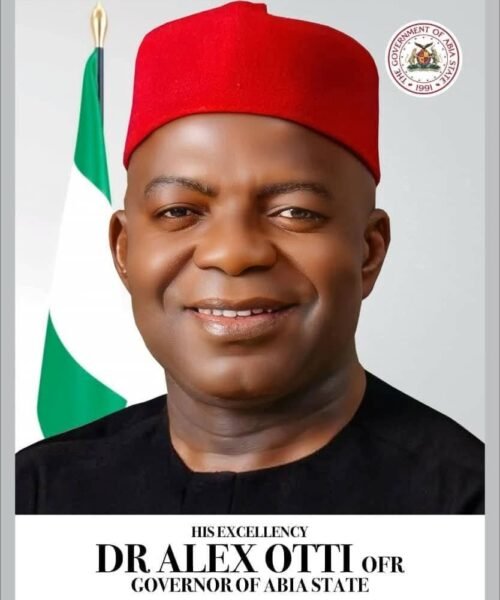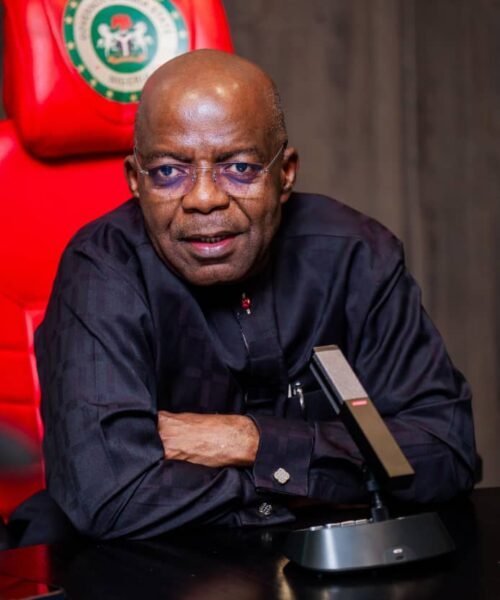Broken Promised, Burdened Citizens: Service and Progress in the Age of Disillusioned Governance — Examining Abia State
The Achebean Mirror: When a People Grow Tired of Waiting
In The Trouble with Nigeria, Chinua Achebe argued that Nigeria’s central dilemma was not the land or the people, but leadership—its failures, its inconsistencies, and its inability to win the trust of those it governs. This observation, though written decades ago, reads today like a prophecy tailored to Abia State. A people once promised renewal often grow skeptical, burdened by memories of unfulfilled commitments. Their suspicion is not born from malice; it is born from the Achebean wound—too many disappointments, too many seasons of nothingness disguised as governance.
The Psychological Weight of Past Administrations
For over two decades, Abians carried the weight of administrations that recycled excuses while the state decayed. Achebe warned that leadership fails when it demands loyalty but refuses responsibility. Abia became a case study in that failure. Crumbling infrastructure, hollow political rhetoric, neglected communities, a government distrust index that soared yearly—these experiences conditioned citizens to doubt even when sincerity finally emerged. The public does not see with fresh eyes; they see through layers of historical trauma.
The Burden of Distrust and the Struggle for New Beginnings
Every government inherits two budgets: one of finance and one of trust. The monetary one can be balanced; the emotional one is far harder to fix. This is why today, when new efforts emerge—quiet reforms, structural rebuilding, long-term planning—they clash with old memories. Achebe’s insight returns: people cannot give trust easily when they were taught, repeatedly, that trust is expensive. The task before Abia’s current government is therefore not only developmental; it is psychological, almost spiritual. It must slowly unwind the damage of years.

Service as a Language: Relearning How Government Speaks
Citizens no longer respond to proclamations; they respond to patterns. In Achebe’s framing, leadership is not what a leader says but what a leader does consistently. When actions form a rhythm, hope stirs, even among the weary. Abia’s emerging governance philosophy is not about announcing miracles but about building systems. Systems take time, discipline and patience. They do not glitter overnight, but they endure. To a people accustomed to cosmetic projects, this new pace feels unfamiliar. But unfamiliar does not mean untrue.
The Citizen’s Dilemma: To Believe or Not to Believe
Achebe noted that Nigerians often oscillate between resignation and hope, and the same paradox defines Abia. Many want to trust again but are unsure whether they can. Many long to see transformation but fear being deceived again. This emotional conflict is not a sign of malice toward the present administration; it is the shadow cast by the past. That is why the conversation must shift from confrontation to understanding—from “Why don’t you see progress?” to “We understand why you need more reassurance.”
The New Burden of Enlightened Governance
Progress today must be measured not in the loudness of its announcement but in the quiet improvement of daily life. Achebe insisted that leadership must be measured by its impact on the governed. If governance today is truly different, it must prove itself through its steadiness, its moral clarity, and its refusal to replicate the political deceit Abians endured for years. Trust must be earned, not demanded. Progress must be shown, not advertised. Credibility must be lived, not declared.
Towards a Reborn Civic Culture
The citizens of Abia are not irrational; they are recovering from long-term political injury. But recovery is possible. Achebe taught that nations rise when leaders and citizens rediscover a shared moral contract. That is the crossroad where Abia stands today. For the first time in decades, the state’s developmental story appears grounded in method, not noise. But the people must be carried along patiently, respectfully and humbly.
A Future Built on Clarity and Courage
True progress is slow, steady, and often silent. The challenge before today’s government is to keep building, keep clarifying, keep engaging—until old suspicions dissolve and new confidence emerges. Achebe would insist that leadership is not a performance; it is a duty. And Abia’s moment of renewal will only endure if this duty is upheld with consistency, compassion, and courage.







